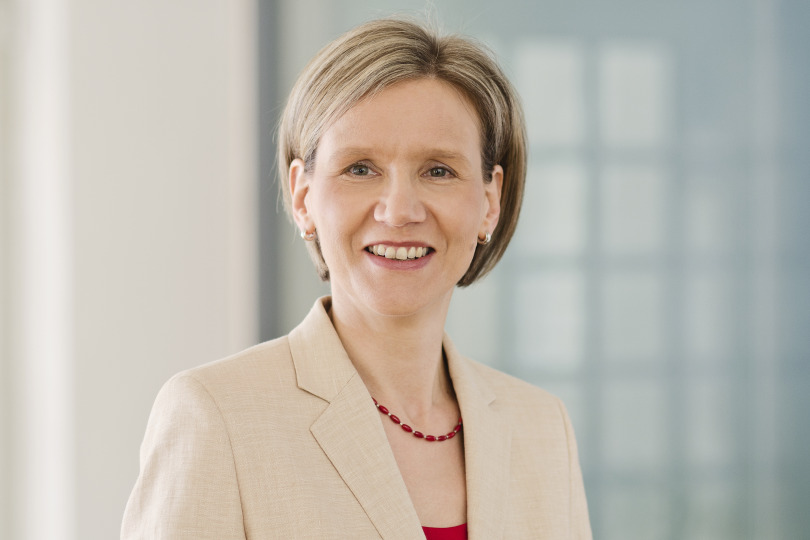
Deepening Collaboration Supports Study of Innovation and Transition Economics
Three years ago, HSE and Germany’s Halle Institute for Economic Research (IWH) signed a Memorandum of Understanding to cooperate on issues concerning innovation and transition economics. Prof. Dr. Jutta Günther of the University of Bremen, who is heavily involved in the collaborative relationship, will be presenting at the XVII April International Academic Conference on Economic and Social Development at a panel on Science, Technology and Innovation Policy. She recently agreed to speak with the HSE news service about the progress in collaboration between the two universities, her research interests, and some of her favourite places to visit in Moscow.
April International Academic Conference
On April 19-22, 2016, the National Research University Higher School of Economics with a support of the World Bank organizes the XVII April International Academic Conference on Economic and Social Development.
Central Asians Happier Than Russians
In Central Asia, subjective wellbeing and life satisfaction tend to be higher than objective wellbeing, and people in Tajikistan and Uzbekistan appear to be more content than Russians about their material circumstances and life in general. According to Tatiana Karabchuk, Deputy Head of the HSE Laboratory for Comparative Social Research (LCSR), and Daria Salnikova, Research Assistant of the same laboratory, relatively low levels of economic inequality in Central Asian countries may be one of the reasons for this paradox.
Is Shadow Education Good for Us?
Prashant Loyalka is a visiting Leading Research Fellow at the HSE Institute for Education and the International Laboratory for Education Policy Analysis. His research article, ‘Does Shadow Education Help Students Prepare for College?’ will be published in the International Journal of Educational Development Vol 49, in July 2016. In an interview with HSE News Service, Dr Loyalka talked about his research into the advantages and shortcomings of shadow education and about why American parents send their kids to after-school Russian math class.
Settlement History Determines Regional Development
In many countries, including but not limited to Russia, frontier regions, populated more recently than the country's core territory, tend to lag behind in terms of socio-economic development. This phenomenon can be explained by legacies such as state formation in remote regions and the autonomy traditionally enjoyed by new settlers, according to Roberto Foa (Harvard University) and Anna Nemirovskaya, Senior Research Fellow of the HSE Laboratory for Comparative Social Research (LCSR).
Mapping Social Mechanisms in a Civilized Public Sphere
On March 16, Apostolis Papakostas, Professor of Sociology at Södertörn University in Stockholm, Sweden gave a presentation of his book ‘Civilizing the Public Sphere: Distrust, Trust and Corruption’ at the HSE Laboratory for Comparative Social Research. Examining the interplay between distrust, trust and corruption, this book maps out the social mechanisms that make actors and organizations in the public sphere perform their activities in a civilized manner.
Companies Train Employees, but Do Not Listen to Them
Most employees and a significant proportion of managers are not briefed on their company's business strategy, while a quarter of all blue and white-collar workers are not informed about operational management issues. While Russian businesses are concerned about employee development, creating bench strength and adopting state-of-the-art ICT solutions, they use the latter only for transmitting orders from the top down. Veronica Kabalina, Kira Reshetnikova and Olga Zelenova of the HSE Department of Human Resources Management examined Russian businesses' approaches to HR development and corporate communications.
Transnational Connections in History or Why Study the USSR?
On March 11, Seth Bernstein gave a presentation — ‘Burying the Alliance: Interment, Repatriation and the Politics of the Sacred in Occupied Germany’ — at the scholarly seminar of the HSE International Center for the History and Sociology of World War II and Its Consequences where he works as a postdoctoral research fellow.
Social Well-being Worsens with Age
An elderly person can be described as aging successfully when they maintain good health and engage in fulfilling social activities. According to Larisa Kosova, Director of the HSE Joint Economic and Social Data Archive, poor health and a lack of savings often prevent older people in Russia from enjoying retirement.
Higher Education in Russia and Beyond: Publish or Perish
The new issue of Higher Education in Russia and Beyond is now available. The topic of this issue is the already famous principle ‘publish or perish’, which is spreading fast across university systems all over the world.

